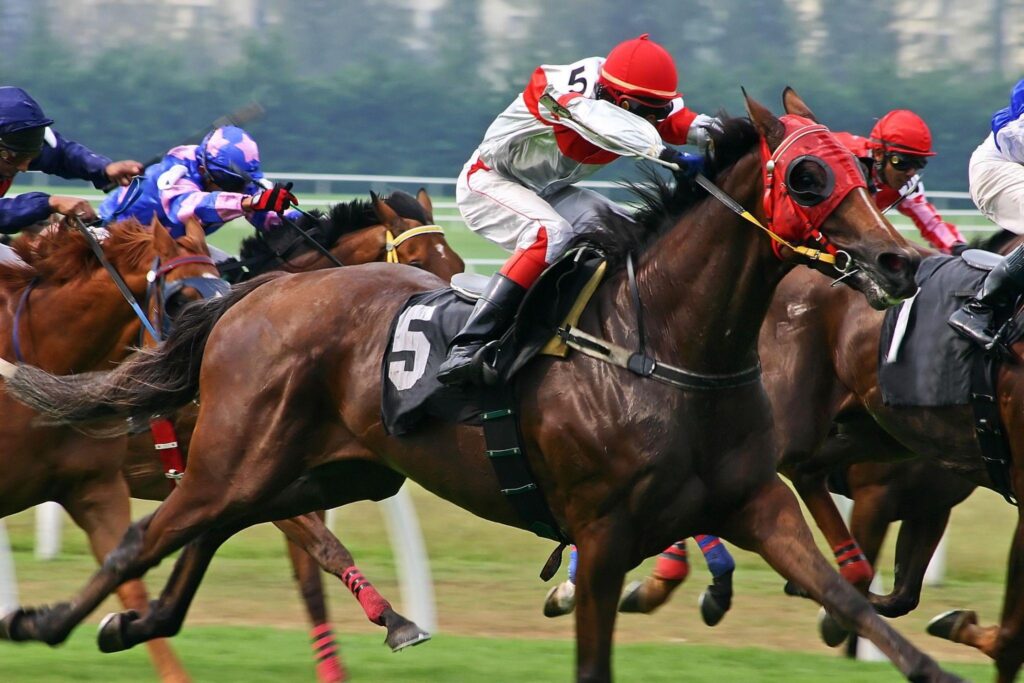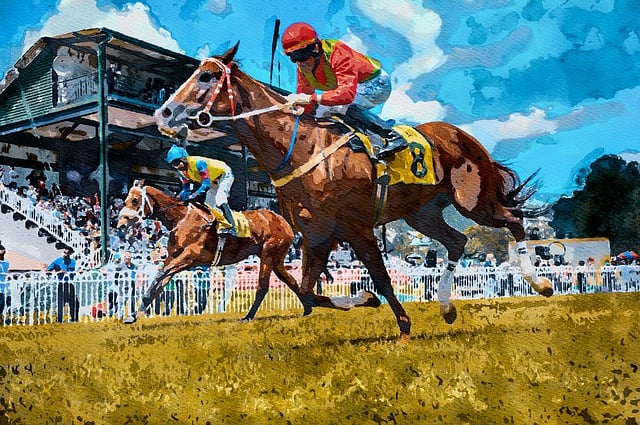 The adrenaline rush, the cheering audience and the atmosphere present during the English horse racing is something that has made its roots in the imagination of people for many centuries. The United Kingdom’s long and impressive history in riding encourages many different race tracks to go for such famous events elsewhere around the globe, which with every event, becomes more and more exclusive and traditions are emphasized. Every event has its own distinct and detailed lineage.
The adrenaline rush, the cheering audience and the atmosphere present during the English horse racing is something that has made its roots in the imagination of people for many centuries. The United Kingdom’s long and impressive history in riding encourages many different race tracks to go for such famous events elsewhere around the globe, which with every event, becomes more and more exclusive and traditions are emphasized. Every event has its own distinct and detailed lineage.
The Classic Calendar
Each season of the United Kingdom’s horse racing calendar is magical, serving as a fountainhead of unlimited fanatical joy. Just like the rest of the events in the UK, these have the fanfare that comes along with competitions as well as social celebrations built around it. The major race meets work like slots to gambling enthusiasts, capturing the utmost energy and anticipation for the days of the races.
Royal Ascot: The Crown Jewel
Each year, the Royal Ascot Festival is acclaimed as one of the best and most distinguished. During these five days in June, the region of Berkshire transforms into an extraordinary mix of sport and fashion.
As is customary, a large number of participants take part in wagering, but the focus is on the dopes, where a blend of the ancient style with the most up-to-date sort of racing offers an action-packed show. The Royal Procession also kicks these events off, which is a remaking of a ritual that began in 1711. It is headlined by the aristocracy arriving on Horseback, bedecked in exquisite coaches.
The Grand National: Liverpool’s Legacy
The Grand National at Aintree confirms that in the contest of horses and riders, all facets of human and animal capabilities get stretched, and the winner is not always the one to cross the finish line first.
While other riders claim to be great, the most famous and perhaps the hardest contest of all steeplechase, which is four miles long with thirty jumps, is at Aintree. Unlike Ascot, Aintree has an even deeper and more classical form of racing at one of the finest places in the UK. The atmosphere is full of a sort of feral excitability that brings to mind the ultimate delight of the game.
The Epsom Derby: History in Motion
Separated from the other five British Classics is The Derby held at Epsom Downs. It is considered by many to be the most prestigious of the five. Every June, the usually serene Surrey downs metamorphose into a racing spectacle. This unique test of skill has challenged the best three-year-olds since 1780 with its difficult gradients and sharp turns, producing legendary names in racing history.
Cheltenham Festival: Jump Racing’s Finest Hour
March is when the Cheltenham Festival is held and features this national event. It is the premier event of the National Hunt racing calendar. A major highlight of the Festival is the “Cheltenham Roar,” which generally occurs upon celebration during the start of the races, and fans’ adrenaline boosts their stamina.
Other than that, the grand finale day of the festival represents the highlight of the gold cup race, where the fiction book-like eloquence of equestes brushes over all the listeners.
York’s Ebor Festival: Northern Charm
The people of Yorkshire blend their famous hospitality with the top horse racing in the world during the Ebor Festival held at York Racecourse. This coming together in August has a historical note with it which has spectacularly transformed this event into one of it’s international multi-racing entirely differently and beautifully. Horses of the highest class form all corners of the globe participate in the Juddmonte International race that is hosted at the York Racecourse which is famous for top level racing.
Glorious Goodwood: A Summer Spectacle
The Glorious Goodwood event includes five major racing competitions of the season. It’s celebrated under the shimmering sun in the hills of Sussex Downs. In the horse racing world, the Qatar Sussex Stakes is one of the most well-known mile races of the summer season, and its grade one is elevated above the rest. The hilly course also adds an appealing challenge to the mounted athletes.
In Closing
It is clear that we ought to remember that these are major events of the year and in reality, contain a lot more than just sports as they showcase British culture, customs, and even the grandeur of the nation.
The beauty of Royal Ascot and the Aintree Grand National’s spectacular showpiece chase is bound to give you a taste of the sport in a way only these horse racing events can provide. If horse racing is your cup of tea, this is an opportunity of a lifetime, as these events are guaranteed to give you the experience that justifies why horse racing is said to be the sport of kings.
The race’s highlight is the illusive factors. These, combined with superb execution, clothing appropriate to the occasion, and the specific historical period during which the events seek to capture the people’s imagination, ensure that the performances are literally unforgettable. All sports aficionados surely have every single one of the events listed on their calendars.
 The 2023 Breeders’ Cup as staged at Santa Anita Park in Arcadia, California on November 3 and 4, but one notable absentee from the end-of-season showcase meeting was Hollie Doyle. Having ridden over a hundred winners on British soil for the fifth calendar year running and finished fifth in the Flat Jockeys’ Championship, 13 winners adrift of her husband, Tom Marquand, the ‘Pocket Rocket’ was originally booked to ride Bradsell, trained by Archie Watson, in the $1 million Breeders’ Cup Turf Sprint.
The 2023 Breeders’ Cup as staged at Santa Anita Park in Arcadia, California on November 3 and 4, but one notable absentee from the end-of-season showcase meeting was Hollie Doyle. Having ridden over a hundred winners on British soil for the fifth calendar year running and finished fifth in the Flat Jockeys’ Championship, 13 winners adrift of her husband, Tom Marquand, the ‘Pocket Rocket’ was originally booked to ride Bradsell, trained by Archie Watson, in the $1 million Breeders’ Cup Turf Sprint. The adrenaline rush, the cheering audience and the atmosphere present during the English horse racing is something that has made its roots in the imagination of people for many centuries. The United Kingdom’s long and impressive history in riding encourages many different race tracks to go for such famous events elsewhere around the globe, which with every event, becomes more and more exclusive and traditions are emphasized. Every event has its own distinct and detailed lineage.
The adrenaline rush, the cheering audience and the atmosphere present during the English horse racing is something that has made its roots in the imagination of people for many centuries. The United Kingdom’s long and impressive history in riding encourages many different race tracks to go for such famous events elsewhere around the globe, which with every event, becomes more and more exclusive and traditions are emphasized. Every event has its own distinct and detailed lineage. In horse racing, the roles of the jockey and trainer are fundamental to a horse’s performance. This article explores the dynamic between the two and their relative importance in the racing industry. While trainers are responsible for the horse’s preparation and overall condition, jockeys make critical decisions in the heat of the race. Balancing these contributions is key to understanding which has a greater impact on a horse’s success in the competitive world of racing.
In horse racing, the roles of the jockey and trainer are fundamental to a horse’s performance. This article explores the dynamic between the two and their relative importance in the racing industry. While trainers are responsible for the horse’s preparation and overall condition, jockeys make critical decisions in the heat of the race. Balancing these contributions is key to understanding which has a greater impact on a horse’s success in the competitive world of racing.